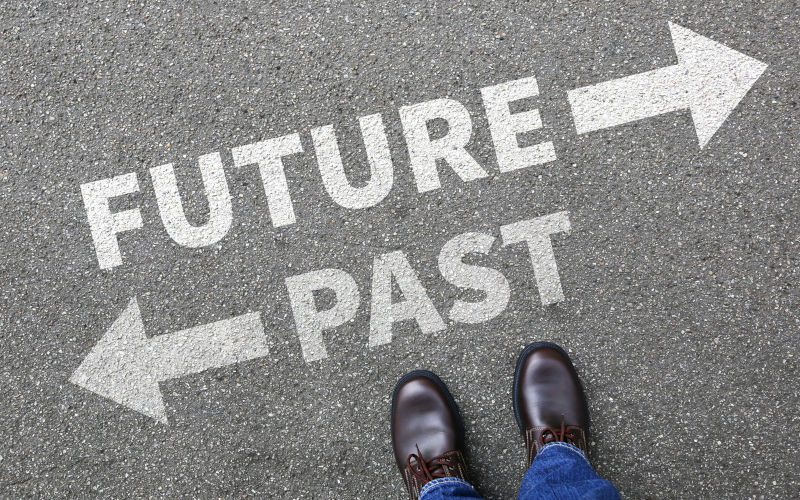We are the custodians of the future, you and I
November 17, 2023
In the 1990s, in an Aboriginal community near Alice Springs a young boy, aged about nine, and I stood looking at some soft, waving, light-filled spinifex, seemingly floating over the deep red earth. See? he said. I shook my head. I was blind to the possibilities right in front of me.
The period between the recent referendum and commencement of the 28th United Nations climate change conferencethe COP (Conference of the Parties), at the beginning of Decemberis a good time to reconsider the way we think, in terms of our responsibilities to each other and to the planet.
Effectively, the referendum no vote on the Aboriginal and Torres Strait Islander voice to parliament was a vote to preserve the status quo which has serious implications for a number of issues affecting the world, most especially for climate change before which many of us are like the frog sitting in water slowly coming to the boil, without registering that the water is becoming fatally hot.
At present, the dominant voices of concern about climate change, particularly the urgent need to phase out fossil fuels, are the voices of scientists, concerned organisations and, mainly young, activists, who are increasingly being targeted by police. What is reducing all of their effectiveness is a large popular movement, such as supported the anti-nuclear movement in the 1980s. At that time, people were concerned about the possibility of nuclear war and of nuclear accidents. As our generation faces the tipping point for the certain end of life on the planet, why arent more people screaming at decision-makers to act urgently and effectively?
We need to change our thinking because our Western cultures in particular, are dominated by the idea that we are free and autonomous individuals with discrete rights and this impacts on everything, including climate change, war and racism. An essential first step is to think of our responsibilities as well as our rights and to stop delegating responsibility for the future of the planet to dominant decision-makers.
Each of us needs to decide what kind of individual we will be. Will we change our priorities and gather together to urgently call for stopping the production of fossil fuels or will we continue to live in comfort and do what suits us without consideration of the consequences?
Gregory Bateson, famed anthropologist, suggested that the inextricable nature of the relationships we have with each other and with the natural world is necessarily delicate and complex, and that paying attention requires great sensitivity. To keep that sensitivity to the forefront of our decision-making, he said, requires a humility that acknowledges deeply that we cannot know everything.
In the 1990s, in an Aboriginal community near Alice Springs a young boy, aged about nine, and I stood looking at some soft, waving, light-filled spinifex, seemingly floating over the deep red earth. See? he said. I shook my head. He darted forward, put his hand part-way into a hole and grabbed the tail of a pale, fat lizard, holding it aloft to the delight of his friends. He beamed at me. Success! I had been looking at the aesthetics of the landscape while he had been on the lookout for movement, perhaps for supper. Lacking his astute attentionperhaps to some tumbling grains of sand outside the hole I was blind to the possibilities right in front of me.
It is prime time for all of us to take into account, in all we do, how we think of our actions and decisions in relation to others, locally and globally. It is not a radical idea that we live in a deeply-interconnected relationship with others and with our environment, but how seriously do our decision-makers take that reality? How sensitive are our political and corporate leaders to our interconnectedness?
Societys decision-makers all, directly and indirectly, affect our lives. In their roles, they often minimise the negative effects of their decisions on others to ensure a short-term gain or profit is made, whether that profit comes in the form of dollars, acquisition of land and property, or simply the maintenance of power. Their work is often compromised because their time-frames are short and often aimed at achieving short-term benefits. Each decision-maker is empowered by virtue of their various positions and offices, so their final decisions can appear to be set in stone and beyond the challenge of ordinary people.
What activists (also, ordinary people) tend to recognise more than the average law-abiding citizen is that decision-making individuals are naked emperors. The protest outside CEO of Woodside, Meg ONeills house in WA was never going to be an actual invasion of privacy, but it did show that one of the key fossil fuel companies of Australia and the world is led by an ordinary personsomeones neighbour living in a suburb like you someone making decisions to continue to pollute at higher and higher levels with the tacit support of government, in turn enabled by a mostly compliant population.
How does this relate to the referendum? Indigenous people often comment that, unlike non-indigenous people who are born into rights, they are born into responsibility. The word custodian is often used by indigenous people to describe their responsibilities for the land, for culture, for each other and for future generations. The phrase custodians for the future suggests we all join together to direct our energies to putting pressure on decision-makers to ensuring the planet is a fit place to live for generations to come.
